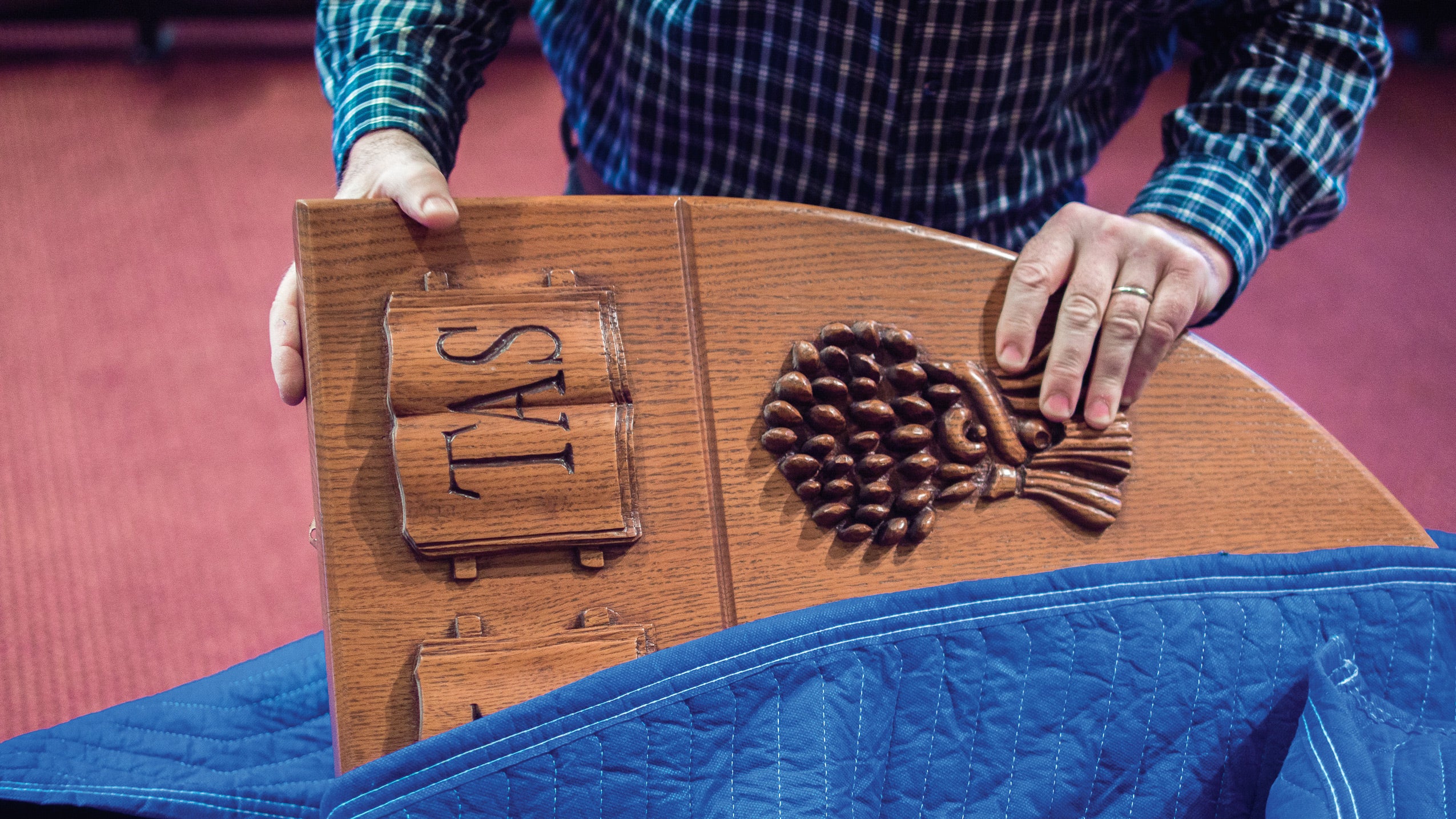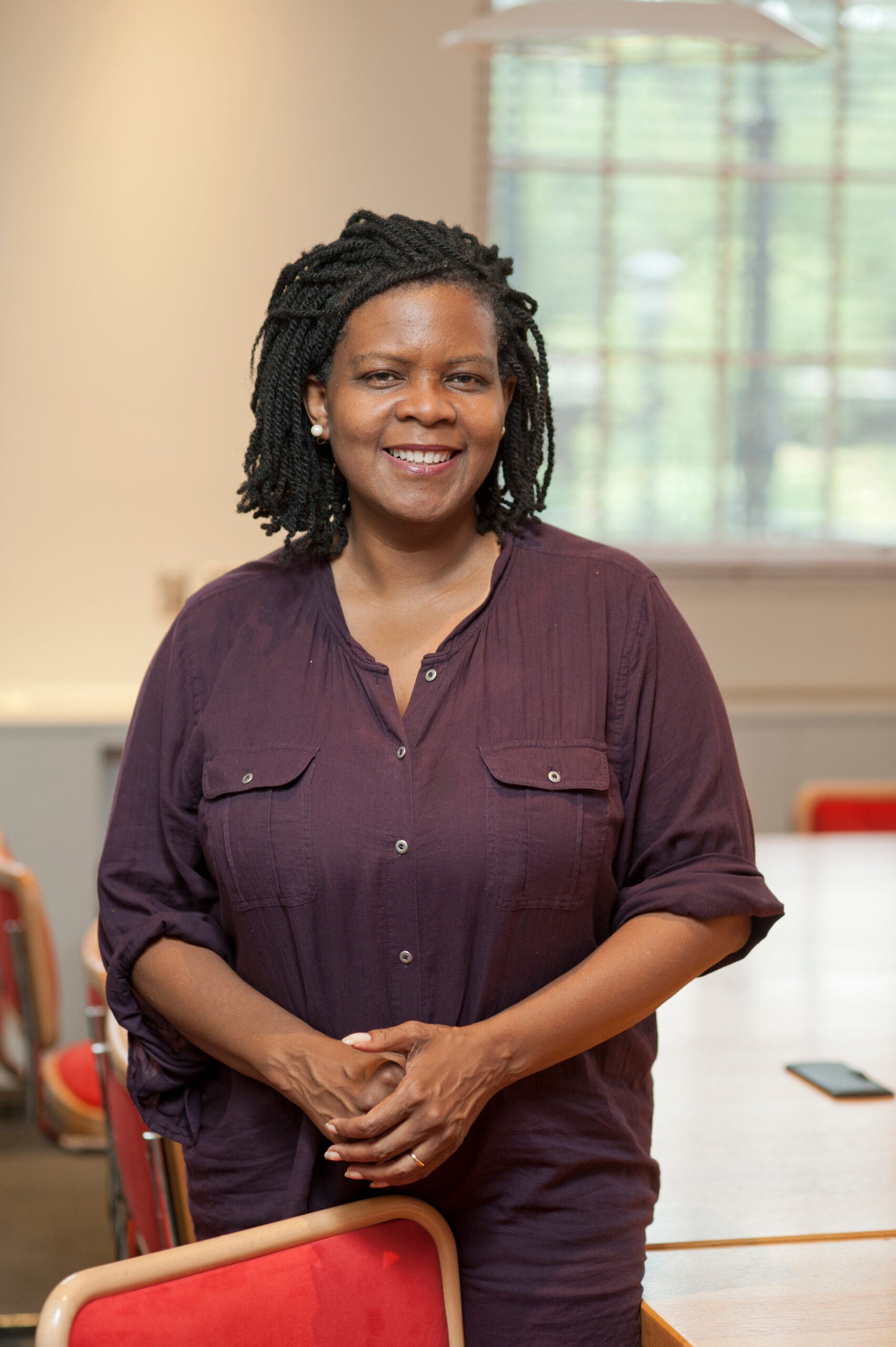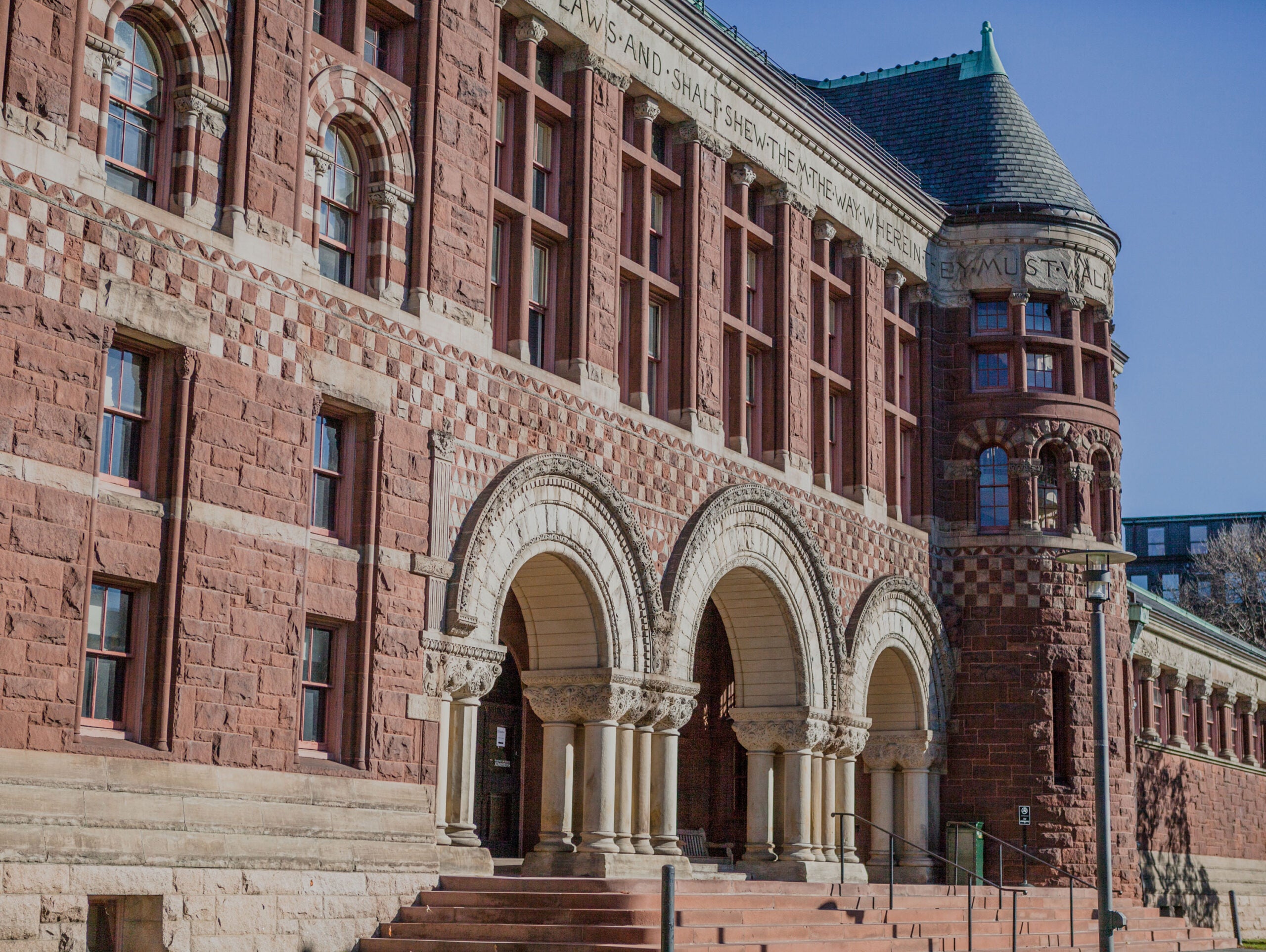People
Annette Gordon-Reed
-
The intense debates surrounding Hamilton don’t diminish the musical — they enrich it
September 14, 2016
An op-ed by Annette Gordon-Reed. By now, very few Americans remain who have not at least heard of the Broadway smash hit Hamilton, which tells the story of America’s first secretary of the Treasury. The vast multitudes who have been unable to score a ticket to see the play have gotten to know it from the chart-topping cast album. Lyrics from the songs have become catchphrases — the determined Hamilton insisting, "I’m not throwing away my shot"; a gleeful Jefferson crowing, after Hamilton did throw away his "shot" (his political career) by publicly confessing to adultery, "Nevah’ gon’ be president now!" That last one was perfect for the 2016 primary season, with candidates falling left and right before the Trump juggernaut...The robust debates about Hamilton will continue as well. Despite the truly astonishing amount of good press the play has received, it has been the subject of a few strong critiques — which have been met with forceful responses. These debates, though informative, seem to me curiously and unfortunately polarized. Defenders of the play often appear to believe that critical discussion of the work must inevitably diminish Miranda’s accomplishment. That is simply not the case.
-
Law School Launches Series on Diversity
September 8, 2016
After a year that saw Harvard Law School embroiled in debates over race and diversity, Law School Dean Martha L. Minow has launched a new lecture series entitled “Diversity and U.S. Legal History.” The 10-week series, which kicked off Wednesday, is a joint effort on the part of the Dean’s office and Law School professor Mark Tushnet’s reading group, which bears the same title as the series....The lecturers—who include Law School professors Randall L. Kennedy, Tomiko Brown-Nagin, Annette Gordon-Reed, Michael Klarman, and Kenneth W. Mack, Divinity School professor Diana L. Eck—will discuss topics ranging from race in American history, to challenges facing Latinos, the originalist case for reparations, and religious pluralism...Law School professor Joseph William Singer delivered the first talk—“567 Nations: The History of Federal Indian Law”—to a crowded room Wednesday in the school’s student center. Singer recounted the development of colonial and United States law regarding Native Americans from the 18th century to the present, arguing that certain judicial rulings or government actions were unconstitutional.
-
This 4th of July weekend, "Face the Nation" delves into the minds of past presidents and a great military leader. Authors Annette Gordon Reed, Peter Onuf, Jean Edward Smith, and Doug Brinkley share their insights on presidential politics, past and present.
-
Podcast: Hamilton, the man and the musical
June 10, 2016
The 70th Annual Tony Awards will be held in New York City on Sunday, June 12, and the big winner is expected to be Hamilton, Lin-Manuel Miranda’s musical adaptation of Ron Chernow’s biography of the famous Founding Father...Joining We the People to remember “the 10-dollar founding father without a father” are two of the nation’s leading legal historians. Annette Gordon-Reed is the Charles Warren Professor of American Legal History at Harvard Law School. She is also the Carol K. Pforzheimer Professor at the Radcliffe Institute for Advanced Study and a Professor of History in the Harvard Faculty of Arts & Sciences. Michael Klarman is the Kirkland & Ellis Professor of Law at Harvard Law School.
-
Jefferson: Hero or Villain? It’s Complicated.
June 10, 2016
In their new book, “Most Blessed of the Patriarchs”: Thomas Jefferson and the Empire of the Imagination, historians Annette Gordon-Reed and Peter S. Onuf take another look at the life and legacy of the third president. More a collection of interpretive essays than a cradle-to-grave biography, the book combines a careful analysis of Jefferson’s thought (the focus of Onuf’s influential body of work) with a deft portrayal of his personal life, closely attuned to his intertwined black and white families (the study of which Gordon-Reed revolutionized in her Pulitzer-winning 2008 volume The Hemingses of Monticello). I sat down with the authors to talk about the complexities of their central character, the shallowness of the hypocrisy charge, and the continuing importance of thinking seriously about Jefferson and his contemporaries in the age of “founder chic.”
-
Books of their youth
May 23, 2016
...The Gazette asked a handful of Harvard faculty to talk about a book from their student days that has since gained in resonance or meaning...Annette Gordon-Reed, Charles Warren Professor of American Legal History, Harvard Law School...“John A. Williams’ novel ‘The Man Who Cried I Am’ was very important to me when I was at Dartmouth. I loved how Williams presented black characters in a naturalistic way. They sounded like people I knew. They had aspirations that were familiar, which is not always the case with depictions of African-Americans, which are, too often, one- or two-dimensional. It was also a very deft roman á clef. Richard Wright appears, as does James Baldwin — a not very flattering portrayal of my idol, actually. Williams writes with a kind of freedom in this book that was startling to me, very exciting. I looked at it a few years back, and noticed a few problematic gender issues that I missed. I think were I to read it in total again, I might have a slightly different view of it. But it was perfect for me at the time.”
-
A Question of History
May 10, 2016
On March 14, the Harvard Corporation voted to retire the Harvard Law School shield, following the recommendation of an HLS committee. The shield is modeled on the family crest of Isaac Royall, whose bequest endowed the first professorship of law at Harvard. Royall was the son of an Antiguan slaveholder.
-
Inside the World of Jefferson
May 4, 2016
Winner of the Pulitzer Prize in History for her book “The Hemingses of Monticello: An American Family,” Annette Gordon-Reed ’84 first read a biography of Thomas Jefferson as a child—and hasn’t stopped learning and writing about him. The HLS professor, who is also on the faculty at the university and the Radcliffe Institute, spoke to the Bulletin about her latest book, “Most Blessed of the Patriarchs: Thomas Jefferson and the Empire of the Imagination,” co-written with Peter S. Onuf. She discusses her own fascination with and (measured) admiration for the third U.S. president—and the significance of teaching history at the law school.
-
A New Look At Thomas Jefferson: ‘Most Blessed Of Patriarchs’
April 28, 2016
These are interesting times for the founding fathers. We’re amid a wholesale rethink of their legacies as they relate to slavery, especially on American campuses. It’s true, of course, of Jefferson: author of the Declaration of Independence and slave-owner. As Annette Gordon-Reed and Peter Onuf write, “It is impossible to understand 18th and 19th century America, and the country the United States has become, without grappling with him and his legacy.” They do so in their new book, “Most Blessed of Patriarchs: Thomas Jefferson and the Empire of the Imagination.”
-
Thomas Jefferson and the Empire of Imagination (audio)
April 22, 2016
Thomas Jefferson stature as one of America’s most beloved founding fathers has taken some hits recently. Jefferson authored the Declaration of Independence, espoused ideals of equality, and called slavery “an abominable crime,” yet he was also a slaveholder his entire life and fathered children with the enslaved woman Sally Hemings who he never freed. Renowned Jefferson scholars Annette Gordon-Reed and Peter Onuf have written a new biography of Jefferson that comes to terms with this flawed but brilliant man called “Most Blessed of Patriarchs”: Thomas Jefferson and the Empire of Imagination. Guest host Marty Cummings-Jordan speaks with Gordon-Reed and Onuf about their book and how they understand this paradoxical figure in our history.
-
Thomas Jefferson is one of America's founders and, even after centuries, a mystery. Annette Gordon-Reed talks about the book she co-wrote with Peter Onuf, Most Blessed of the Patriarchs.
-
Thomas Jefferson repeatedly insisted that the private lives of America’s founders should be off limits to historians. In 1817, when a writer asked him about his family, the author of the Declaration of Independence coughed up little information, noting that personal matters “would produce fatigue and disgust to . . . readers.” For generations, scholars agreed and most studies of our third president and his contemporaries focused largely on their political careers. But that taboo started to crumble about a half century ago. And thanks to the pioneering work of Harvard Law School professor Annette Gordon-Reed, author of the Pulitzer Prize-winning “The Hemingses of Monticello’’ (2008), we can now readily understand why Jefferson lived in such mortal fear of biographers...In “ ‘Most Blessed of the Patriarchs’: Thomas Jefferson and the Empire of the Imagination,’’ Gordon-Reed and her coauthor, Peter S. Onuf, a professor emeritus of history at the University of Virginia, seek to reassess Jefferson’s legacy, given all the recent discoveries about his long-buried private life.
-
In October 2015, Harvard Law School students demanded the removal of the law school's shield because of its ties to a slave owner — Isaac Royall Jr. — who is also credited with helping form the Harvard Law School. Annette Gordon-Reed, law school professor and Thomas Jefferson historian, was one of the only people on a 12-person committee who wanted to keep the school's shield. That committee ultimately voted to retire the shield from the law school in March. We talked to Gordon-Reed about why she thought the school should've kept the shield and why she believes many people weren't receptive to her suggestion.
-
‘Hamilton’ and History: Are They in Sync?
April 12, 2016
As “Hamilton” fever has swept America, historians have hardly been immune....But even among historians who love the musical and its multiethnic cast, a question has also quietly simmered: does “Hamilton” really get Hamilton right?...Annette Gordon-Reed, a professor of history and law at Harvard and the Pulitzer-Prize-winning author of “The Hemingses of Monticello,” put it more bluntly. “One of the most interesting things about the ‘Hamilton’ phenomenon,” she wrote last week on the blog of the National Council on Public History, “is just how little serious criticism the play has received.”...Ms. Gordon-Reed — who is credited with breaking down the resistance among historians to the claim that Thomas Jefferson had a sexual relationship with Sally Hemings — wrote in her response that she shared some of Ms. Monteiro’s qualms, even as she loved the musical and listened to the cast album every day. “Imagine ‘Hamilton’ with white actors,” she wrote. “Would the rosy view of the founding era grate?”
-
‘Last Lecture’: Annette Gordon-Reed traces her journey from Texas childhood to lawyer and historian
April 6, 2016
As part of the Last Lecture Series presented every year by the HLS Class Marshals, Professor Annette Gordon-Reed ’84 spoke about her experiences combining legal analysis and historical research.
-
Thomas Jefferson, Neither God nor Devil
April 5, 2016
Thomas Jefferson has long been a lightning rod, but the past year has been tougher on him than usual. Protesters on college campuses have plastered Jefferson statues with Post-it notes reading “racist” and “rapist.” And on Broadway, the musical “Hamilton” has deliciously skewered him as a flamboyantly scheming hypocrite. Still, on a recent afternoon, there was America’s third president, standing serenely on his pedestal in front of the Columbia School of Journalism, flanked by Annette Gordon-Reed and Peter S. Onuf, the authors of the latest book to plumb the mysteries of his character. ... Ms. Gordon-Reed, a professor of history and law at Harvard and the author of the Pulitzer Prize-winning book “The Hemingses of Monticello,”seconded the point. “People read history the way we watch movies, where you have a good guy and a bad guy,” she said. “What’s the point of even going to the library to do research if you already know what you think?"
-
Harvard Corporation agrees to retire HLS shield
March 14, 2016
The Harvard Corporation has approved the recommendation of the Harvard Law School Shield Committee to retire the HLS shield, which is modeled on the family crest of an 18th century slaveholder.
-
Process Matters
March 11, 2016
On Friday, the committee tasked with considering the future of Harvard Law School’s seal, which some have criticized for its connection to the slaveholding Royall family, recommended that the school change its emblem. While we disagree with the substance of this decision, we respect the process by which HLS reached it. As the committee's report makes clear, this debate is far more nuanced than a simple case of right versus wrong or racial justice versus injustice. The committee explained that faculty, staff, students, and alumni of diverse races, genders, and ages fell on both sides of the issue. Indeed, one of America’s foremost scholars on slavery’s history dissented from the committee’s recommendations.
-
The Colonial Williamsburg Foundation’s board of trustees recently elected historian and scholar Annette Gordon-Reed to the board. Gordon-Reed was the first African American to win the Pulitzer Prize for History with the publication of her book The Hemingses of Monticello: An American Family in 2009. More than a decade earlier, Gordon-Reed broke onto the scene with the publication of Thomas Jefferson and Sally Hemings: An American Controversy. That book challenged previous research suggesting Jefferson was not the father of Hemings’ children and came a year ahead of the DNA tests that confirmed a genetic match between Jefferson and Hemings descendants. “Annette’s work illustrates that one scholar’s research can change how we see fundamental individuals and events of that history, and with it our shared American identity,” said Thomas F. Farrell II, chairman of Colonial Williamsburg’s board of trustees and the chairman, president and CEO of Dominion Resources.
-
Harvard Law to Abandon Crest Linked to Slavery
March 6, 2016
Harvard Law School is poised to abandon an 80-year-old shield based on the crest of a slaveholding family that helped endow the institution, as campuses across the country debate the use of historic names and symbols that some consider offensive...But it came with a passionate dissent from Annette Gordon-Reed, a professor of legal history who is known for her scholarship on Thomas Jefferson and his relationship with Sally Hemings, his slave. The work of Ms. Gordon-Reed, who had argued that historians had too readily discounted the oral testimony of Hemings’s descendants, was vindicated in 1998 by DNA evidence showing that Jefferson fathered a child by Hemings...In an email Friday, Ms. Gordon-Reed said she had been influenced by her scholarship on Hemings. “This is my life’s work,” she said. “I sincerely believe that we owe it to the enslaved to work through those feelings and think of ways to carry their stories forward. And we should do that in a way that shows the inherently entwined nature of the good and bad of our past, using written text and symbols like the sheaves and, even, buildings like Monticello.”
-
Law School committee recommends retiring current shield
March 4, 2016
A committee of Harvard Law School faculty, students, alumni, and staff established in November by Dean Martha Minow has recommended to the Harvard Corporation that the HLS shield — which is modeled on the family crest of an 18th century slaveholder — no longer be the official symbol of Harvard Law School.



